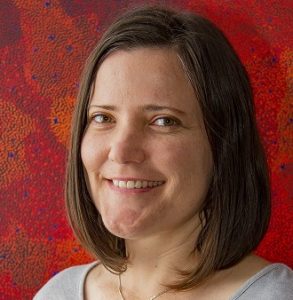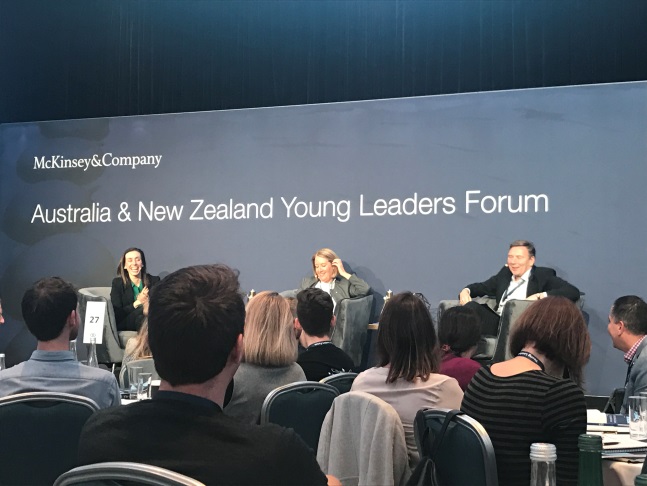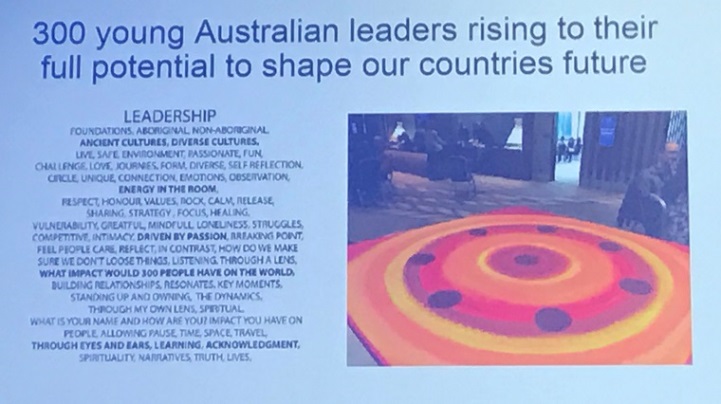Reflections on the McKinsey Young Leaders Forum –
When we look to predict the future, our character, not necessarily our strategy will be defining.
A word from our Program Manager, Eliza Smith
In June this year I was really grateful to receive a scholarship to attend the first McKinsey Young Leaders Forum in Australia and New Zealand on behalf of KYEEMA. Three hundred participants from the corporate, public and not-for-profit sectors in our region gathered for three days in Sydney to delve deep into the essence of leading one’s self, leading others, and leading organisations for the betterment of our region and the world. In this era of disruption and rapid change, it was heartening and hopeful to focus on bringing humanity back to leadership.
The stage was set for me with the fact that studies have shown that globally 13% of the workplace are engaged, 24% are actively disengaged and the remaining large chunk are sitting somewhere in the ambivalent in-between. An analogy for this modern workplace was given. Picture a canoe full of people, with one group rowing one way on one end, and another group rowing the opposite direction on the other end, whilst the rest sit idly being pulled in either direction in-between. This is a really stark predicament, considering the significant global problems we face.
We examined the three elements of the leadership mind – mindfulness, compassion and selflessness. Particularly interesting to me was the emphasis on mindfulness as a true superpower for leaders in today’s world. The impacts of the prolonged distracted work patterns and behaviours were given. Did you know that multi-tasking has actually been shown to shrink the grey matter in the prefrontal cortex in of your brain? Startling, but perhaps not surprising for those of you reading this, in-between tasks at work or cooking dinner and attending to your children’s questions at home. Two rules for practising mindfulness in the workplace were take homes for me. Number one – focus on what you choose. Number two – choose your distractions mindfully.
We examined the productivity case for creating distinctive environments through diverse and inclusive workplaces and the need to couple this with fostering an environment of psychological safety where there is a culture in which making, learning from and admitting to mistakes are encouraged and a diversity of opinion and feedback at all levels in the organisation are welcomed and considered thoughtfully. The speaker made the point that generally organisations have made great habits of seeking out curious people and then excluding them from leadership. In a world where the right answers are becoming harder to find, this needs to change.
Guest speakers Elizabeth Broderick AO (middle), Australia’s longest serving Sex Discrimination Commissioner (2007-2015) and David Thodey (right), Chairman of CSIRO and ex CEO of Telstra, in a Q&A session with McKinsey faculty leader and CEO of Emergent, Holly Ransom (far left).
I learned a considerable amount from the session on leading organisations in the age of digital disruption – a world in which rapid forces of change are at play. We were given an exercise in which we were encouraged to breakdown the areas of threat to the sustainability of our organisation. This helped me frame the future of KYEEMA as an agent of change for reduced inequality and our potential future endeavours in social business amid the communities we work. I look forward to continuing on the rest of the program which follows the forum in June and July and to bringing the insights that have been learned to the team at KYEEMA.
Letter from the indigenous artist to participants: she was commissioned to take part in the forum and paint an image (depicted) that captured the spirit of the gathering.





